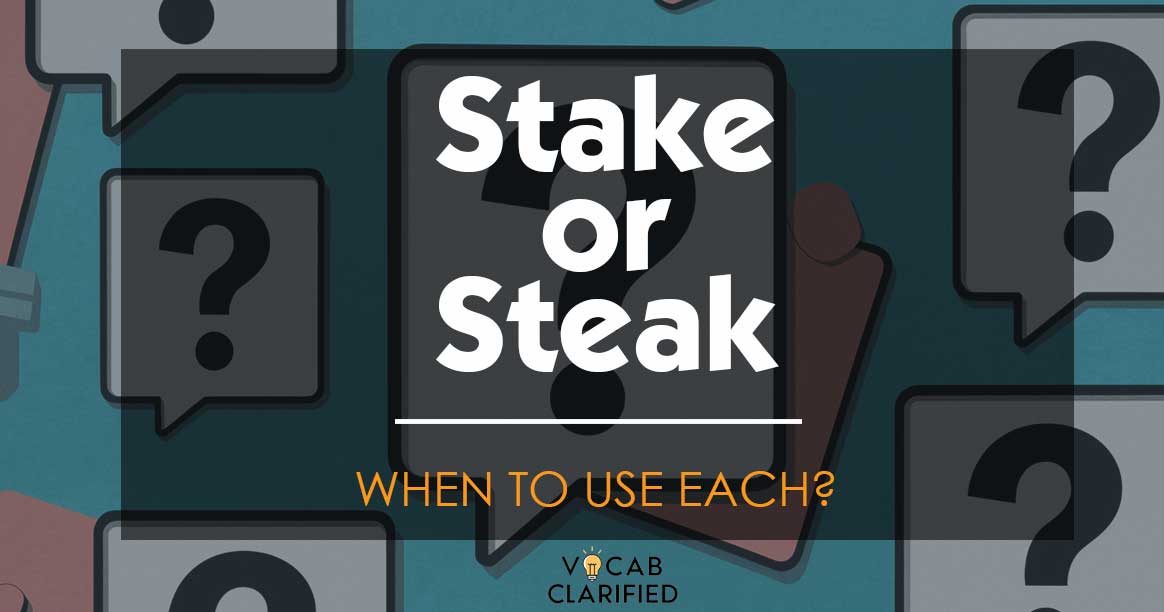Ever found yourself wondering whether to use “stake” or “steak”? While these two words sound identical, they have completely different meanings and are used in very distinct contexts.
Understanding the difference between “stake” and “steak” is essential, especially since using the wrong one can lead to confusion, whether you’re talking about food or making an investment.
Understanding Stake And Steak
Stake: Definition and Usage
The word “stake” is typically used in contexts involving risk, investment, or physical objects like poles.
It can refer to a number of things, including a financial interest in a venture or a wooden or metal post driven into the ground.
For example:
- Example 1: Investors have a large stake in the company’s future success.
- Example 2: The gardener used a wooden stake to support the growing tomato plants.
In both examples, “stake” refers to something valuable—either a financial interest or a physical support.
Steak: Definition and Usage
On the other hand, “steak” refers to a slice of high-quality meat, often from beef.
It is a popular dish served in restaurants and at home, and is often prepared by grilling, broiling, or frying.
For example:
- Example 1: She ordered a medium-rare steak for dinner at the restaurant.
- Example 2: The chef prepared a perfectly cooked steak, seasoned with herbs and spices.
In these cases, “steak” clearly refers to food, specifically a meat dish.
Side-by-Side Comparison
| Aspect | Stake | Steak |
| Definition | A financial interest or a post in the ground | A slice of meat, often from beef |
| Common Usage | “He had a large stake in the outcome of the game.” | “The steak was cooked to perfection.” |
| Key Differences | Refers to risk, interest, or physical support | Refers to a type of food, typically beef |
When deciding between “stake” and “steak,” consider the context.
If you’re discussing business, risk, or outdoor activities, “stake” is the appropriate word.
If you’re talking about food or cooking, “steak” is the correct choice.
Everyday Usage Examples
To make it even clearer, here are some real-world examples showing how “stake” and “steak” fit into everyday language:
- Stake: “He placed a wooden stake in the ground to mark the boundary of his property.”
- Steak: “We grilled some steaks for the barbecue last weekend.”
- Stake: “She has a personal stake in the success of the project since she invested a lot of time in it.”
- Steak: “The steak was tender and juicy, just the way I like it.”
- Stake: “The political candidate has a lot at stake in this upcoming election.”
- Steak: “I’d love to try the new steakhouse that just opened downtown.”
Conclusion
In summary, while “stake” and “steak” sound the same, they are used in completely different contexts. “Stake” often refers to something valuable at risk, or a post driven into the ground.
Meanwhile, “steak” refers to a type of food, usually a delicious piece of meat. By paying attention to the context of your writing or conversation, you can easily choose the correct term and avoid any awkward misunderstandings.

